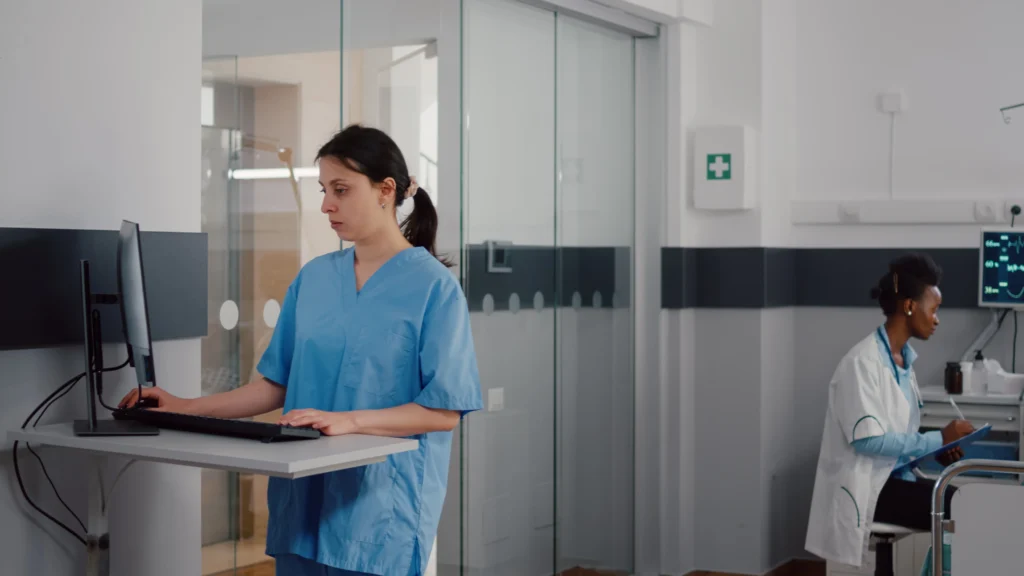In the healthcare world, the role of a healthcare receiver is key. This role is crucial for both providers and payers. A healthcare receiver helps manage and improve healthcare organizations facing financial or operational challenges.
Healthcare receivers handle many tasks, from managing finances to overseeing operations. They aim to stabilize and help healthcare entities recover. Knowing about this role helps providers and payers tackle challenges and work well with these experts.
In this guide, we'll dive into what a healthcare receiver does, their impact, and how to work together. Our goal is to share important insights about this vital role. We want to help shape the future of healthcare management.

Key Takeaways
- Healthcare receivers manage and optimize struggling healthcare organizations
- They focus on financial stability and operational improvement
- Receivers play a crucial role in guiding healthcare entities towards recovery
- Understanding this role benefits both providers and payers
- Effective collaboration with healthcare receivers can enhance overall healthcare delivery
Core Functions and Responsibilities of a Healthcare Receivers
A healthcare receiver is key in fixing and growing troubled healthcare groups. They use their skills in many areas to keep the organization stable and growing.
Financial Management and Asset Protection
Healthcare receivers protect the organization's money health. They check financial reports, find ways to get better, and make plans to keep finances stable. They cut costs and find new ways to make money to keep assets safe and the organization going strong.
Operational Oversight and Quality Assurance
Good operations are essential for healthcare groups. Healthcare receivers manage daily tasks, make processes better, and focus on quality. They aim to improve patient care, cut waste, and make operations more efficient. This includes managing staff, improving processes, and setting performance goals.
Regulatory Compliance and Legal Obligations
Healthcare receivers must navigate complex healthcare rules. They make sure the organization follows laws and keeps the right records. They work to avoid risks and keep the organization safe from legal problems.
| Core Function | Key Responsibilities | Impact on Organization |
|---|---|---|
| Financial Management | Budget analysis, cost reduction, revenue optimization | Improved fiscal stability and asset protection |
| Operational Oversight | Process improvement, staff management, quality assurance | Enhanced efficiency and patient care quality |
| Regulatory Compliance | Legal adherence, documentation management, risk mitigation | Reduced legal risks and maintained regulatory standing |

The Impact of Receiverships on Healthcare Organizations
A healthcare receivership can greatly change a struggling healthcare organization. They bring skills in managing money, making operations better, and improving quality. This helps turn around failing facilities.
Healthcare receivership often make big financial changes. They look at money flow, renegotiate deals, and find ways to save money. This makes it easier for the organization to spend on better patient care and new technology.
They also focus on making operations more efficient. They make processes smoother, cut down on waste, and adjust staff levels. These steps lead to better use of resources and smoother operations.
Most importantly, healthcare receivers improve patient care. They fix big problems and bring in best practices. This leads to better care and happier patients.
| Area of Impact | Before healthcare receivership | After healthcare receivership |
|---|---|---|
| Financial Health | Operating at a loss | Profitable, stable finances |
| Operational Efficiency | Long wait times, resource waste | Streamlined processes, optimal resource use |
| Patient Care Quality | Below industry standards | Improved outcomes, higher satisfaction |
| Organizational Culture | Resistant to change | Embracing continuous improvement |
The effects of a healthcare receiver go beyond quick fixes. They work with current leaders and use good change management. This ensures that good changes keep happening even after they're gone.
Best Practices for Working with a healthcare receivership
Working with a healthcare receiver can really help struggling healthcare groups. At our firm, we've seen how talking openly and sharing data can lead to good results. We suggest that providers and payers share their challenges and goals with the healthcare receiver.
Being flexible is crucial in this work. A healthcare receiver often brings new ideas and strategies. By accepting these changes, you can move faster towards financial health. Remember, their main aim is to help your organization succeed.
It's common to face obstacles during receivership. Issues like staff resistance to change or job security worries can arise. We advise tackling these problems directly through clear, consistent communication. This way, you can build trust and keep morale high.
In the end, working well with a healthcare receiver is about teamwork. By aligning your goals, being open to new ideas, and keeping communication clear, you can strengthen your healthcare organization for the future.
Why partner with Vinali RCM for Receiverships?
Partnering with Vinali RCM for healthcare receivership ensures that your organization receives expert guidance during challenging financial and operational times. With Vinali RCM’s deep understanding of healthcare management, we provide comprehensive support to stabilize your organization, optimize operations, and improve patient care.
Our experienced team is skilled in managing finances, ensuring regulatory compliance, and enhancing operational efficiency, helping you navigate through receivership smoothly. By working with Vinali RCM, you gain access to tailored solutions that foster long-term growth and financial health, allowing you to focus on providing exceptional patient care while we handle the complexities of recovery and improvement.
Discover how Vinali RCM's Personal Injury services can streamline your practice's billing and enhance your financial outcomes. Learn more here!
FAQ
What is a healthcare receiver?
A healthcare receiver is a professional who helps manage healthcare organizations in trouble. We oversee finances, improve operations, and follow rules to make care better.
When is a healthcare receiver typically appointed?
A receiver is appointed when a healthcare place is in big trouble. This could be because of money problems, not working well, or not following rules. We bring our expertise to help fix these issues.
What are the primary responsibilities of a Receiverships?
Our main jobs are managing money, making sure things run smoothly, and following rules. We check finances, make things more efficient, and improve care quality. We also make sure the place follows all the rules.
How does a healthcare receiver impact financial management?
We help fix money problems by looking at finances closely and finding ways to improve. We make sure money is handled well and find ways to keep the place stable financially.
Can a healthcare receiver improve operational efficiency?
Yes, we can. We make things better by improving how things are done every day. We work on making staff better, setting goals, and cutting waste. This helps care for patients get better.
How does a healthcare receiver ensure regulatory compliance?
We make sure the place follows all the rules by keeping up with laws. We handle paperwork, reports, and legal stuff. This keeps the place safe and legal.
What is the typical duration of a Receivership?
How long we work depends on the place's problems and goals. We usually help for months to a few years. Our goal is to make things better for the long run.
How do healthcare receivers collaborate with existing leadership?
We work with leaders to make changes and improve. We talk openly, set goals together, and use the team's strengths. We also help make things better where needed.
What are some best practices for working with a Receivership?
To get the most out of working with us, keep talking openly and share information. Be ready to change and work together towards goals. This helps achieve success and stability.
How do healthcare receivers benefit patients?
By making things better financially and operationally, we help focus more on patient care. This leads to better care, happier patients, and better health for the community.







